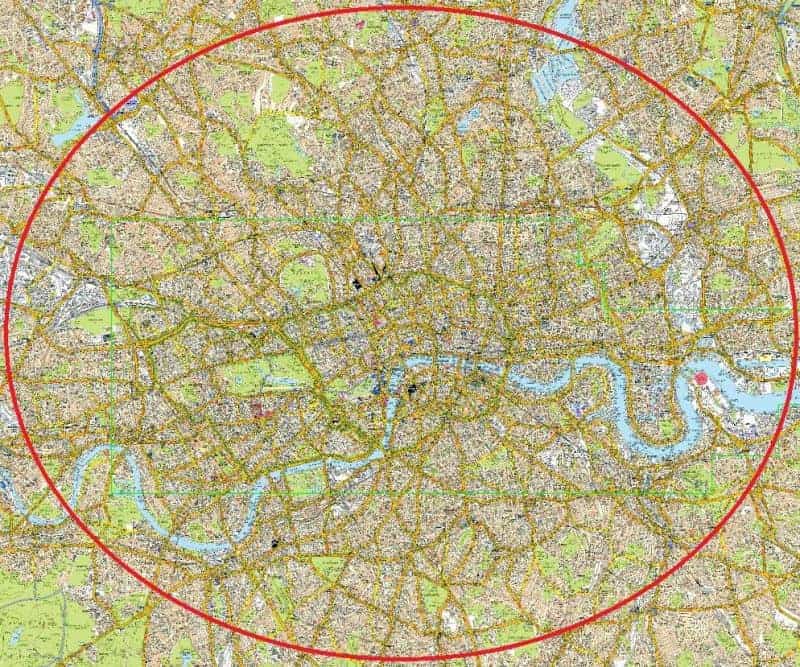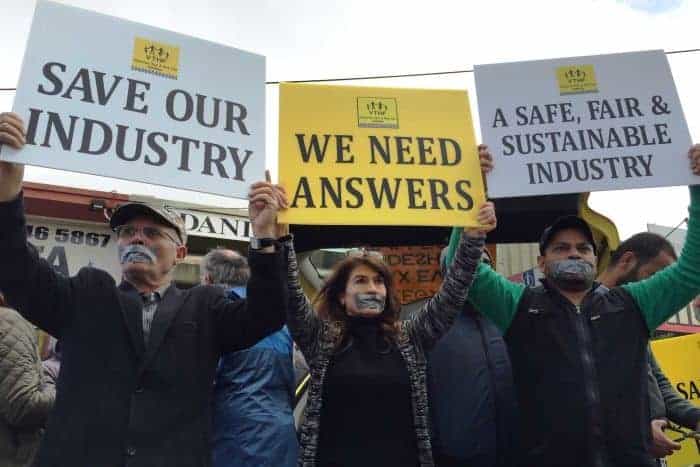Ever since Uber was first introduced to the world, protests from taxi drivers became an immediate trend in the taxi industry. And for years to come, rallies and controversies only got worse in this taxi vs. uber scenario.
Which begs the question: why does the taxi industry hate uber so much?
Many individuals have tried to answer the question, but only a few were reasonable enough. Some stated that uber was “outrageously unfair”, while some stated that taxi drivers are just “afraid”. But is it really the case?
In this blog, we will find out the reasons why many taxi drivers are against uber. So, buckle up! Because we’re just not spilling the tea in this ride, but we’re bringing the whole kettle!
#1: It takes a lot of effort, money, and patience to become a taxi driver
While it may be true that becoming a taxi driver doesn’t require you to be a college graduate, that doesn’t mean applying for the job is easy. To become a taxi driver, you must face and overcome difficult circumstances first. These circumstances include purchasing expensive license and passing a very difficult exam.
These expensive licenses are referred to as “taxi medallions”. Unfortunately, there are only a few medallions around, so they cost quite a lot. In fact, one license cost $1million way back in 2014. Today, it can cost around 180 thousand euros (about $212,000).
Meanwhile, in London, instead of buying a license, you need to pass a qualifying exam, called “The Knowledge of London” test. The exam was introduced in 1865, which requires students to memorize the name and location of all roads in central London. So, it takes approximately three to four years of studying to pass this exam. Talk about a big investment.

However, to become an uber driver, you don’t have to take this ridiculous exam nor even buy the medallion. Anyone can easily become an uber driver. Yes, maybe they do have screenings or requirements to pass, but this? Just to earn $10 per hour? Now you can see in part why taxi drivers are displeased.
#2: Uber drivers outnumber taxi drivers and take all the passengers
Before everything else, remember the complications that taxi drivers have to endure just to be qualified? Well, in economics, it’s called “barriers to entry”.
It’s when companies make it harder for other people to have the same job as their employees. In that way, they will be able to charge higher prices because there isn’t quite a lot of people offering these services. Take doctors, for example. In order to become one, you must undergo years and years of education, training, and internship. As a result, not everyone can become a doctor, as compared to a fast food worker, almost anyone can be employed.
TL;DR: the more there is of something, the less that something is worth.
But the problem is, uber drivers don’t have “barriers to entry”. In fact, uber drivers are twice the number of cab drivers. The more Uber drivers take on the job, the more a cab loses its value.
Furthermore, uber rides are much more accessible compared to taxicabs. All it takes for someone to take an uber is to book a ride, wait for the ride to arrive, then ride the ride. Meanwhile, a customer looking for a taxi would have to play by the odds that an unoccupied cab would pass by. And since both services are competing for the same customers, it’s obviously hard for taxi drivers to earn decently.
Which brings us to another point…
#3: Uber undercuts taxi fares
Passengers looking for a cost-saving short trip around the city will easily choose uber as their ride. Why? There are two reasons.
One, because uber doesn’t require passengers to tip drivers. Any uber gratuity is already included in the price. Meanwhile, taxicabs expect at least 15% added tip beyond the metered fare.
Two, rates can be 25% to 50% cheaper in uber than taking a local taxicab.
If you’re wondering why taxis are more expensive than uber, again, it’s the “barriers to entry” scheme playing here. Taxi fares are expensive because there’s less of their service, thus, they have more value – unlike uber. Plus, taxi companies operate on brick and mortar offices, while uber operates on virtual network which has lower operating costs.
#4 Taxis play by the rules, uber cheats
We have rules and laws for a reason. Obviously. Whether it is for road safety, to protect children, enforce business contracts, to ensure quality work environment, to protect intellectual property.
We confidently ride our cars, build a family, create new businesses, apply for work, sell products, because regulations work.
Public order and the social contract succeed when these rules apply fairly and consistently to all. When these rules fail, we complain about corruption, whether by business or politicians.
Taxi drivers follow rules; they apply for licenses to drive cars, then to drive taxis, they train, they undergo background check (for criminal records and fitness), pay regulatory fees (for insurance, licensing), they pay fines when they break driving rules as well as taxi business rules. And as mentioned before, some are required to apprentice for up to 3 years before obtaining a hack license.
Then uber comes along, does none of this, and expects to skim the best rides off the top. They want to just make money without the expense and expectation and requirements that taxi drivers abide by, in a business taxi drivers have started in the first place for many years.
Now, uber is getting praised, earns millions of dollars each year, and is killing (literally) the taxi game. If they could do all this without any license, then there’s no reason why other industries shouldn’t do the same.
This is the reason why taxi drivers are protesting. Not because they’re scared of a little competition, but because it’s an unfair one. They went through ups and downs to get where they are, and they expect uber to do the same.

Uber takes advantage of the loopholes in the taxi industry. While it may be a good market strategy, the same cannot be said with their management system. By boycotting regulations, evading US taxes, giving unlicensed drivers a chance to earn a living isn’t particularly fair for taxi drivers. And until they acknowledge these flaws, they will continue to expect more protests in the near future.
Follow us on our Facebook and Twitter pages for the latest stories, products & updates.





















